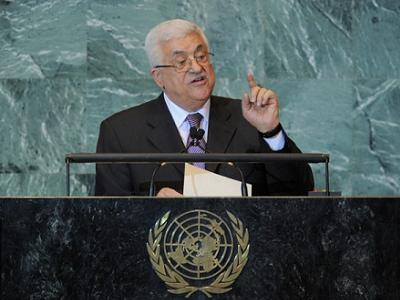
The leaders of Palestine and Iran have criticized double standards at the 72nd General Assembly of the United Nations.
The president of Iran, Hassan Rouhani, argued that Iran was a peaceful country despite U.S. President Donald Trump’s comments it was a “rogue state.”
“We promote peace among peoples and nations. We have never defended tyranny, we have never threatened anyone. However, we do not accept threats from anyone,” said Rouhani.
"Ignorant, absurd and hateful…"
Iran's Rouhani hits back at Trump in his #UNGA speech. pic.twitter.com/vSz4ZWpc6J
— Al Jazeera English (@AJEnglish) September 21, 2017
He also noted that the “path of moderation is the path of peace; but a just and inclusive peace: not peace for one nation, and war and turmoil for others.”
His comments come one day after U.S. President Donald Trump threatened to pull out of the international nuclear deal with Tehran.
Meanwhile, Palestinian President Mahmoud Abbas condemned Israeli human rights violations against Palestinians during his speech at the U.N. assembly.
#UPDATE Abbas at UN calls for end to 'apartheid' for Palestinians https://t.co/kf8A7cGvtE pic.twitter.com/pHfhUbyHUq
— soosanmirzai5 (@soosanmirzai5) September 21, 2017
Abbas accused Israel of leading an Apartheid regime, destroying schools and targeted attacks against Palestinians.
Abbas argued that Palestine’s calls for help had “fallen on deaf ears.”
“I wonder how they can allow such double standards,” he asked in reference to the U.N.’s stance on Israel.
If Mahmoud Abbas called for the total destruction of #Israel in the midst of the UN what would be the reaction? https://t.co/54QBZp3KKm
— yvonne ridley (@yvonneridley) September 20, 2017
His speech comes a day after the United States inaugurated its first military base in Israel.
A few dozen U.S. soldiers will live and work on the base, situated inside the school of the Israeli Air Force, in Negev.
The U.S. Senate also recently approved a US$700 billion military-spending budget for 2018. The bill exceeds Trump’s initial budget request by US$97 billion. It also eclipses a US$549 billion military spending cap established by the 2011 Budget Control Act.
(teleSUR, PC, Social Media)





